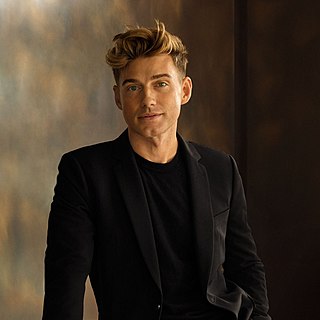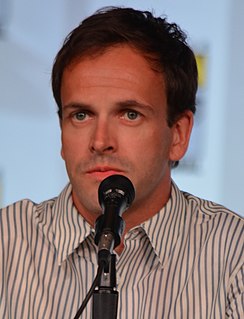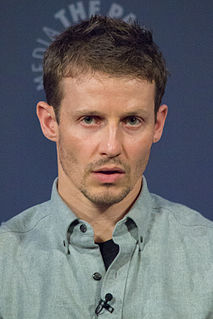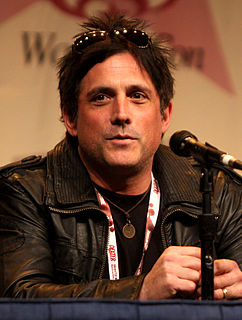A Quote by Andrew Haigh
For me, all you want from your actor is for them to engage on a deeply emotional level with the material. If you feel like that happens, directing the actors is pretty much done at that point.
Related Quotes
I'm still learning to be the best actor I can be, and I have a long way to go to get to the level I would like to be at. My focus is still 100% acting acting acting. Once I hit a point where I feel very comfortable as an actor - because you can never stop learning, I don't care how comfortable you get, you can never stop learning - but once I hit a point where I can get that comfort level of taking on the task of directing and having the confidence in myself to have people's respect when I give them direction, that's definitely something I want to do someday.
To be an actor and a director, I actually felt it helped me tremendously to be in the scenes of The Hollars, because as you can see, they're very intimate, very intense scenes. You don't want to break the actor's character and you don't want to break their momentum, so as the actor, I tried not to call cut as much as I could, and almost make it feel like a play, just set this environment where these amazing actors could do what they wanted to do.
Fortunately, I have an amazing partner that allows us to do these different things, who will be directing an episode himself soon, I'm sure. But, it's amazing. I love directing and I think that it allowed me to get closer to the actors and actually work with them on a level that I haven't before, and really get down there with them. I would jump at the chance to do it, anytime I could.
I don't want to take shots at professional actors, because obviously the great ones are great. But I do think that given the kind of stories I've been telling in my films, it's hard for me to imagine how professional actors would have done better. And it's easy for me to imagine how they would have done worse. Because I think a lot of what an actor is trained to do and a lot of what an actor's instincts point toward is clarification, is always making it clear what's happening in the story, how the character fits into the scene, what the character wants.
Having been an actor, I always want to leave room for the actors to find their comfort zone, so I don't like to be too rigid in how I plan my shots. It's different if you have weeks to rehearse and you can rehearse on your sets or in your locations and you can plan that out with your actors, but in modern independent filmmaking, you don't really have that time. You have to have a certain level of improvisation.






































